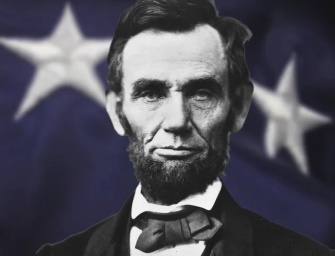Ronald H. Koehn of Fulton, IL, will present a program at the Sterling-Rock Falls Historical Society’s April meeting, titled “What’s so special about Lincoln?” It is scheduled for 2:00 p.m. on Sunday, April 14, 2024, at the Lincoln Learning Center, 611 E. Third Street, Sterling, IL. The program is free and open to the public.

Koehn is a native of the Land of Lincoln. He earned his BS degree in History and Political Science and his MS degree in History at Illinois State University. Employed as a Social Studies instructor at Fulton High School from 1974-2003, he taught United States History, Sociology, and American Government. Koehn always taught his students that Abraham Lincoln was the greatest President in American history.
When Barack Obama of Illinois was elected 44th President of the United States on November 4, 2008, there was much talk about his improbable journey to the White House. Yet, when Abraham Lincoln of Illinois was elected 16th President, his journey to the Executive Mansion was even more improbable!
On February 12, 1809, Abraham Lincoln was born to Thomas and Nancy Lincoln, poverty-stricken illiterates, born in Virginia to undistinguished families, on a hardscrabble farm near Hodgenville in Hardin County, KY. In 1816 the family relocated to the wilderness of Spencer County, IN, where young Abe’s mother died from “milk sickness” within two years. It was here that he sporadically received his scant amount of formal education, no more than one year total.
Raised to hard manual labor on the farm, Lincoln worked as a Grocery-store Clerk, Farmhand, and Ferryboat Rower on the Ohio River. After his family relocated again to Illinois, Lincoln clerked in a village store. He served as a Militiaman for a few months during the Black Hawk War of 1832 (saw no combat.) He went into partnership in a general store which failed. He then worked as an Assistant Surveyor, studied Law by reading borrowed books, and served as Postmaster in New Salem, IL, for three years.
Lincoln served as a Whig in the Illinois House from 1834 to 1842; was licensed to practice Law in 1836; married Mary Todd, a well-educated member of a prosperous Kentucky family, in 1842. Lincoln served as a U. S. Representative from 1847-49, but he was not renominated. Forsaking politics, he concentrated on developing a successful Law practice. However, his interest in politics was suddenly reawakened, by the passage of the controversial Kansas-Nebraska Act of 1854, sponsored by Senator Stephen A. Douglas of Illinois.
In 1854 Lincoln was an unsuccessful candidate for the U. S. Senate, and two years later he was an unsuccessful Vice-Presidential candidate at the first Republican National Convention. Douglas defeated Lincoln in his second bid for election to the U. S. Senate in 1858, but Lincoln gained National exposure and prominence debating the slavery issue in Illinois. In 1860 he secured the Republican nomination for President, as a “dark horse” compromise candidate, much to the dismay of his better educated and more experienced rivals! Lincoln’s improbable journey to the Presidency culminated with his Electoral College victory, in a four-way contest which split the Democratic Party.

With the seven States of the Lower South having seceded from the Union, and with the organization of the Confederate States of America prior to his inauguration on March 4, 1861, Lincoln became the President of the “Divided States of America,” facing a National crisis of monumental proportions. Considering his lack of formal education and scant public service of note, Lincoln appeared less likely to succeed as the Nation’s Chief Executive than most men who have occupied the office.
How, then, do we account for Lincoln’s brilliant success as President? What special qualities or abilities did he possess? These are the questions that Koehn will attempt to address in his program: “What’s so special about Lincoln?”